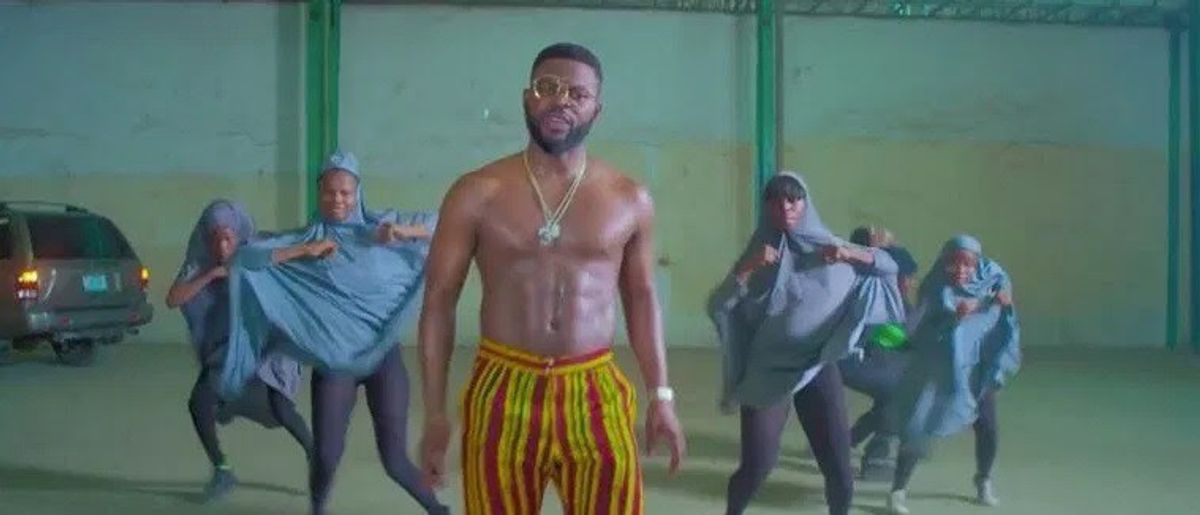In the months since American rapper, actor, and general polymath Childish Gambino released his chart-topping track This is America – a withering critique of gun violence and racism in the US that went viral as a music video– dozens of local variants have sprung up around the world.
They range from comic parodies (“Eh, This is Canada, snow got us slippin’ up” and “This is Korea, kimchi got us slippin’ up”) to deadly serious remixes about Iraq, which takes aim at the US invasion’s devastating consequences, or This is South Africa, which addresses violence against women in the country.
The more hard-edged adaptations have doubtless rankled local authorities, but earlier this month Nigeria’s state broadcaster became the first – to our knowledge – to ban one of them, ruling that Nigerian rapper Falz’s bold critique of corruption, violence, and abuse of authority in Africa’s most populous country was “vulgar” and risked inflaming social and religious tensions. “This is Nigeria, everybody be criminal,” runs the refrain. Here’s a line-by-line, shot-by-shot breakdown of the video, from Quartz’s Africa team.
Why the ban matters: Early next year, President Muhammadu Buhari will seek re-election, despite concerns about his health, his mediocre stewardship of the economy, and his failure to stem rising sectarian and tribal violence. As the ruling All Progressives Congress struggles with defections to the opposition, Falz’s song addresses precisely the systemic issues that the authorities would rather avoid ahead of the vote.
Why it doesn’t: As of this writing, the video had garnered 13.5 million views on YouTube. How many of those views are domestic as opposed to foreign is impossible to say. But in a country that now boasts more than 100 million internet connections it’s hard to hide the picture of Nigeria that Falz paints.


















